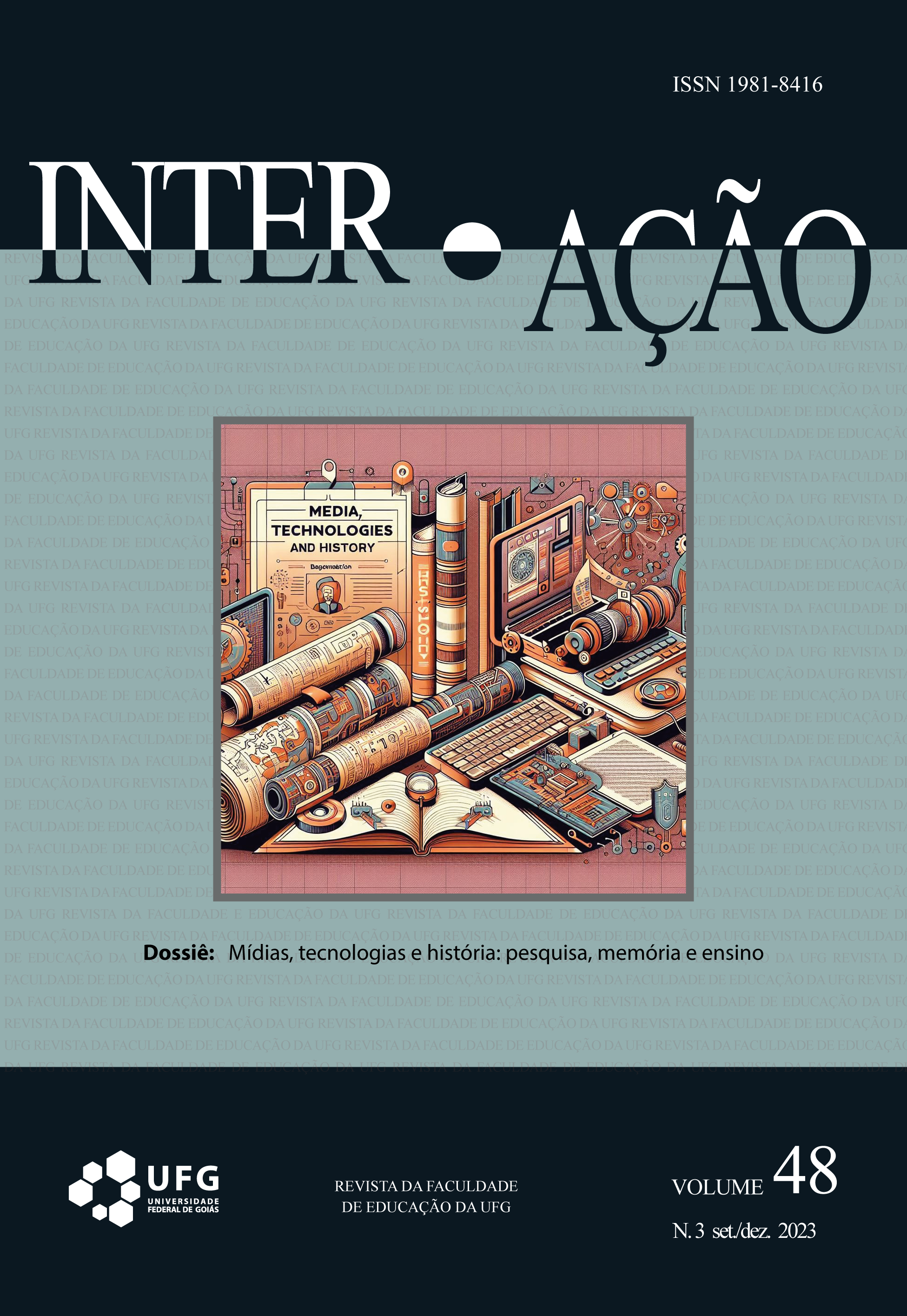USE OF DIGITAL GAMES IN BASIC EDUCATION: ANALYSIS OF APPROACHES ON APPLICATIONS IN THE SCHOOL CONTEXT FROM 2017 TO 2020
DOI:
https://doi.org/10.5216/ia.v48i3.75883Abstract
This research arose from the need to verify, in scientific productions, research results related to the application of digital games in the Brazilian educational context. This context instigated the objective of the proposed research: to analyze which were and how the applications of digital games occurred in the school context of basic education, focusing on the teaching-learning process. This is a bibliographical descriptive qualitative approach research (GIL, 2008) with data obtained from the database of the Coordination for the Improvement of Coordenação de Aperfeiçoamento de Pessoal de Nível Superior - CAPES portal. The results indicate that 87% of the researchers were able to confirm through their results that the games actually generated motivation or increased student learning.
KEYWORDS: Education. Technology. Digital Culture. Digital Games.
Downloads
References
BRAUN, V.; CLARKE, V. Using thematic analysis in psychology. Qualitative Research in Psychology [s. l.], v. 3, n. 2, p. 77-101, 2006. Disponível em: https://www.researchgate.net/publication/351175878_A_ANALISE_TEMATICA_COMO_METODOLOGIA_NA_PESQUISA_QUALITATIVA_EM_EDUCACAO_EM_CIENCIAS. Acesso em: 20 nov. 2023.
GEE, J. P. Bons videogames, boa aprendizagem. Perspectiva, Florianópolis, v. 27. n. 1, 2009.Disponível em: https://periodicos.ufsc.br/index.php/perspectiva/article/view/2175-795X.2009v27n1p167. Acesso em: 20 nov. 2023.
GIL, A. C. Como Elaborar Projetos de Pesquisa. 4ª Ed. São Paulo: Atlas, 2002.
GIL, A. C. Métodos e técnicas de pesquisa social. 6. ed. São Paulo: Atlas, 2008.
HUIZINGA, J. Homo ludens: o jogo como elemento da cultura. São Paulo: Perspectiva, 2005.
ILHA, P. C. A; CRUZ, D. M. Jogos eletrônicos na educação: uma pesquisa aplicada do uso do Sim City 4 no ensino médio. In: Anais do Workshop de Informática na Escola. 2006. Disponível em: https://www.br-ie.org/pub/index.php/wie/article/view/897. Acesso em: 25 mar. 2021.
JENKINS, H. Cultura da Convergência. São Paulo: Aleph, 2009.
LARA, C. L. T. Desenvolvimento de competências e habilidades do século 21 por meio de jogos digitais: uma experiência com Minecraft na reconstrução virtual da cidade de Mariana/MG. 2019. Dissertação (Mestrado em Tecnologias da Inteligência e Design Digital) - Pontifícia Universidade Católica de São Paulo, São Paulo, 2019. Disponível em: https://tede2.pucsp.br/handle/handle/22392. Acesso em: 20 nov. 2023.
LÉVY, P. As Tecnologias da Inteligência: O futuro do Pensamento na Era da Informática. Trad. Carlos Irineu da Costa. São Paulo: Editora 34, 2010.
MATTAR, J. Games em Educação: como os nativos digitais aprendem. São Paulo: Pearson Prentice Hall, 2010.
MINAYO, M. C. de S. Pesquisa Social: teoria, método e criatividade. 26. Ed. Petrópolis, RJ: Vozes, 2007.
MOREIRA, C.; CRUZ, D. M. As narrativas dos jogos eletrônicos e suas possibilidades educacionais. Teoria e Prática da Educação, Maringá, v. 12, n. 2, p. 179-184, 2009. Disponível em: https://encurtador.com.br/hjoG4. Acesso em: 15 jan. 2021.
NERIS, R. de C. D. C. Método de design de jogos digitais educativos para uso no contexto escolar. 2019. Dissertação (Mestrado em Ciências da Comunicação). - Universidade de São Paulo, São Paulo, 2019. Disponível em: https://www.teses.usp.br/teses/disponiveis/27/27154/tde-09012020-163930/publico/RaqueldeCastroDantasCavalcanteNeris.pdf. Acesso em: 20 nov. 2023.
OLIVEIRA, M. S. O jogo da História: Aprendizagens significativas e jogos eletrônicos numa escola municipal do interior da Bahia. Jogos Digitais e Aprendizagens: Fundamentos para uma prática baseada em evidências. Campinas: Papirus, p. 227-244, 2016. Disponível em: encurtador.com.br/qsvA3. Acesso em 17 jan. 2021.
PRENSKY, M. Nativos Digitais, Imigrantes Digitais. Tradução de Roberta de Moraes Jesus de Souza. On the Horizon, MCB University Press, v. 9, n. 5, out. 2001.
PRENSKY, M. Aprendizagem baseada em jogos digitais. São Paulo: Editora Senac, 2021.
Published
How to Cite
Issue
Section
License
Copyright (c) 2023 Antonio Jamerson Mendes da Rocha Côrtes, Eliana do Socorro de Brito Paixão

This work is licensed under a Creative Commons Attribution-NonCommercial 4.0 International License.
Inter-Ação uses the Creative Commons Attribution 4.0 License for Open Access Journals (Open Archives Initiative - OAI) as the basis for the transfer of rights. Open access means making documents available on the Internet free of charge, so that users can read, download, copy, distribute, print, search, or link to the full text of documents, process them for indexing, use them as input data for software programs, or use them for any other lawful purpose, without financial, legal, or technical barriers.
Authors publishing in this journal agree to the following conditions:
1) Authors retain copyright and grant the journal the right of first publication, with the work simultaneously licensed under the Creative Commons Attribution License, which permits redistribution of the work with attribution and first publication in this journal.
2) Authors are permitted to enter into additional, separate agreements for non-exclusive distribution of the version of the work published in this journal (e.g., for publication in an institutional repository or as a book chapter), with attribution and first publication in this journal.
3) Authors are permitted and encouraged to publish and distribute their work online (e.g. in institutional repositories or on their home page) at any time before or during the editorial process, as this may generate productive changes as well as increase the impact and citation of the published work.















